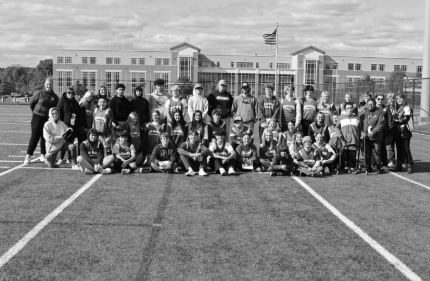Synchron helps people with paralysis; Brain chips receive FDA approval
March 17, 2023
Former Amazon CEO Jeff Bezos and Microsoft founder Bill Gates are testing mind-controlled computing on humans and helping people with paralysis.
Synchron is a company in the brain-computer interface (BCI) industry. “A BCI is a system that deciphers brain signals and translates them into commands for external technologies,” according to CNBC.
Synchron is the first BCI company to receive approval from the FDA to conduct a clinical trial for a permanent implant, according to Synchron.
CEO Tom Oxley explains the benefit of the technology in a TED Talk, focusing on those who are severely disabled. People with paralysis lose the ability to communicate with others. BCI technology enables those previously unable to send text messages and tweets by controlling keyboards with their brain.
Ordinarily, brain tech requires a procedure that is extensive and invasive. Cutting into the skull and performing surgery is a task less than 200 neurosurgeons can perform. However, Synchron accesses the brain through the bloodstream. About 2,500 neurosurgeons can perform this surgery, allowing more opportunities for people to receive the treatment. On top of this, it is also much safer because BCIs “can be left inside a blood vessel,” Oxley explains. “Cells grow over it, incorporate it into the wall, like a tattoo under the skin, and we are protected from that immune reaction.” This process is why the stentrode device received FDA approval.
Synchron’s engineers work with patients to determine what parts of the brain activate when someone is told to do something such as pressing down their foot. “You won’t see the foot moving because they’re paralyzed, but we’ve been able to determine which brain signals are generally linked to “‘press down your foot,’” the CEO explains.
According to Oxley, one of the most interesting discoveries is how interactions for one person are the same for another. “Our brain signals are universal,” he says. “This means we are creating a dictionary of the brain. This is going to make BCI truly scalable.”
Graham Felstead was the first person to receive the transplant in 2019. “Graham,” the CEO starts. “He said, as his ALS was progressing, that it gave him immense comfort to know that even if his body was failing, he was always going to be able to tell his wife that he loved her.”
Oxley imagines BCI as the future of communication. He believes we can express emotions without using words. “But for right now,” he says. “BCI is about restoring the lives of millions of people with paralysis. After years of being trapped, this technology promises the return of autonomy and independence.”
“I think it is a great program because it gives those who are paralyzed the ability to communicate,” junior Val Angulo says. “It’s amazing the things we can do with technology now to communicate and it goes to show that we can accomplish amazing things.”











